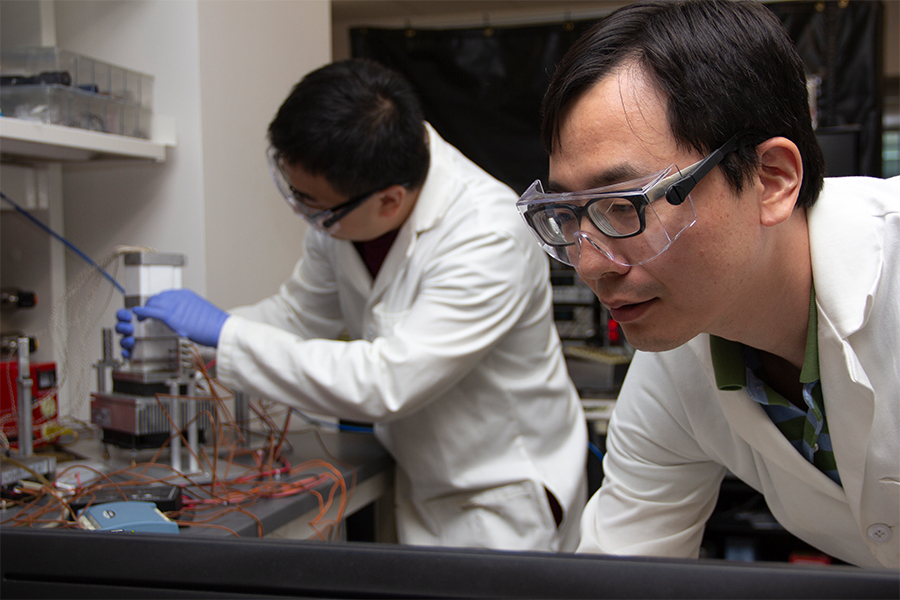
Sheng Shen's Spectacular Supersolder
By Daniel Carroll
Sheng Shen, assistant professor of Mechanical Engineering and faculty affiliate of the Scott Institute, has created a solder-like material called supersolder, with twice the conductivity of conventional solders and a compliance higher by two to three orders of magnitude.
In electronics, solder is used to connect two parts together. As a bridge, one of its most important functions is to transfer heat away from critical electronic components and toward the heat sink, which uses air or water to safely dissipate heat. As technological advances allow for the creation of smaller and more powerful computers and electronics—and with temperatures in computer chips reaching higher than 100 °C—this heat dissipation function has become more crucial than ever.
However, conventional solders are reaching the limit of their ability to conduct heat effectively over a long lifetime, making heat dissipation a limiting factor for further computing and electronics development. If these fields are to advance further, this crucial bottleneck will have to be overcome.